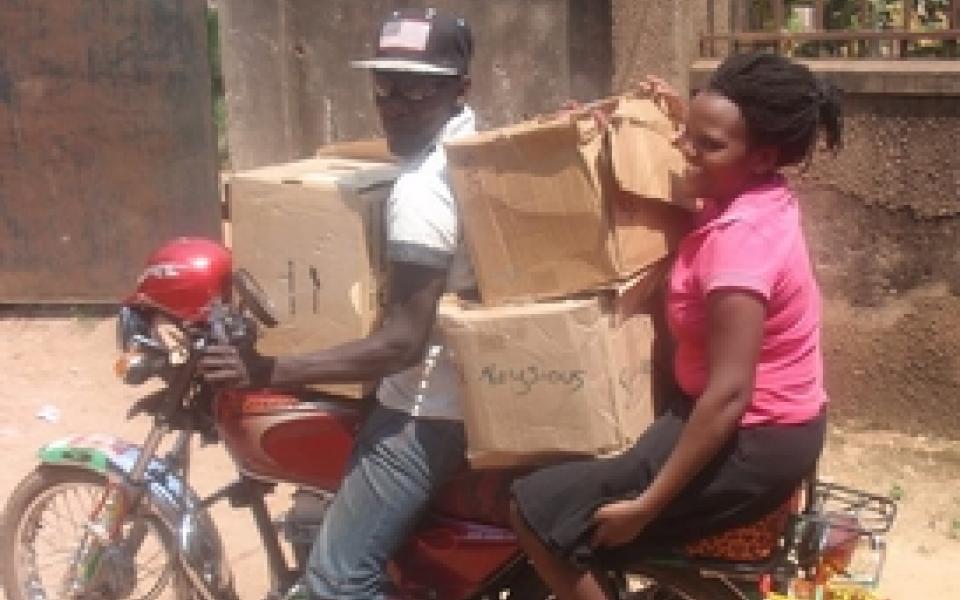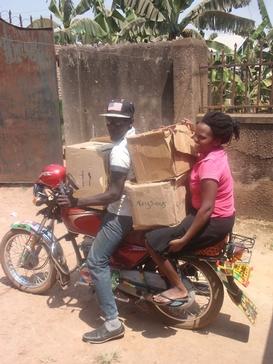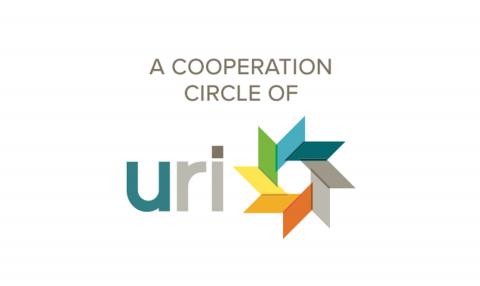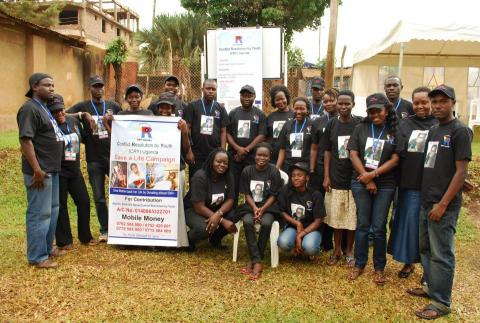
Members of Restoring and Empowering Communities Cooperation Circle, in Kampala, Uganda
These three URI Cooperation Circles bring together the younger members of society and teach them alternatives to violence as way of resolving conflicts. They hold programs teaching the importance of appreciating other cultures. Reaching youth is essential for raising a generation that does not yet have a history of intolerant or prejudiced behavior. By teaching children the value of peaceful conflict resolution, these groups are building a strong foundation for a diverse and healthy society.
Pamoja CC, Kampala, Uganda
Pamoja Cooperation Circle uses interfaith cooperation as a strategy to address social problems affecting youth, such as violent extremism during riots, demonstrations, election campaigns, and other activities. CC members attend conflict training sessions, then mentor youth, helping them to look at themselves as pivotal players in peacebuilding. The programs encourage youth to mobilize, using their energetic characters to influence their peers.
“Currently, the youth at the universities are not very familiar with religious diversity and therefore tolerance of one another becomes hard for most who hail from different backgrounds. Often youth are prime targets for steering violence in the country, if not tamed it makes them become potential obstacles to peace.”
Some of Pamoja CC’s programs include hosting environmental discussions at secondary schools, training at women’s prisons in Kampala, International Day of Peace events, and soccer sporting events.
“We mobilize the youth in and out of school with an aim of promoting religious tolerance through education, communication and sports. As the youth are joined together by the common values of love, respect, care and others, they begin to value people of other faiths as one and equal to them.”
CLICK HERE TO READ THEIR FULL CC PROFILE
Conflict Resolution by Youth, Kampala, Uganda
This Cooperation Circle focuses on youth-to-youth conflict transformation, in which youth speak to fellow youth, their elders, and other society members about non-violent means of peace building. “We want to see a non-violent youth generation because up to the present day, the most attractive venture in Uganda is the use of violence riding on the back of the youth who are soft targets. So we exist to counter the negative public stereotype of exploiting the youth and instead sell to them a culture of non-violence.”
CC projects include holding regional peace camps for youth that celebrate diverse African culture. Youth learn from each others’ cultures through music, dances, and the sounding of cultural drums.
The CC also leads a “debate and diplomacy academy” where experts lead youth in debating, negotiation and diplomacy training, and practice agendas. Youth gain education in articulation, diplomacy, research, analytic, case-development, speaking, teambuilding, and negotiation skills.
“Under the youth-to-youth non-violent conflict resolution and mentorship activities we are equipping the youth with leadership skills and use of non-violent conflict resolution means to promote a culture of peaceful co-existence. This is coupled with us grooming the young CC members to take over from where we the senior youth leaders have taken CRY Uganda, hence demonstrating that it’s possible for them to lead as youth and not to wait for us to get old.”
CLICK HERE TO READ THEIR FULL CC PROFILE
Restoring and Empowering Communities, Kampala, Uganda
Cooperation Circle programs focus on reaching children at an early age to help steer them away from refrain from behaviors and practices that breed violence based on culture or religion. The CC tries instead to celebrate diversity, and to nurture cultures of good values that promote peaceful coexistence among people of different backgrounds.
This year’s CC programs focus on two major areas: The Books for Keeps Program and The Girl Child program. Under the Books for Keeps program, the group reaches out to 250 classrooms in over 100 schools and provides them with free books. The program addresses the problem of a poor reading culture among most schoolchildren, who also grapple with limited access to books in their poorly-stocked libraries, or with parents and guardians who cannot afford books. The children are encouraged to keep the books, which enable them to read and pass on the knowledge to other students.
“We strive to instill a reading culture among school children, youth and the general community with the hope that they get one or two things to learn from the readings … We use a mix of group counseling, anti-bullying talks, and other means, to bring together children of various spiritual expressions and cultures. At an early age we educate children on the behaviours and practices that facilitate free cooperation and interaction with all people.”



